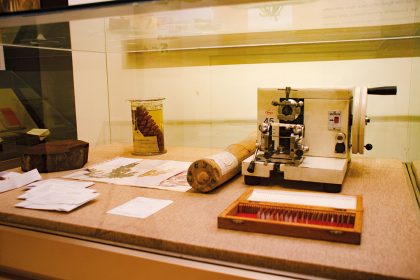Findings of countrywide survey:
Police, Customs, political class, FEB, and judiciary among them
The Sri Lankan public perceives the police, the Customs, the judiciary, etc., as being among the ten most corruption-prone institutions, according to a survey conducted the Commission to Investigate Allegations of Bribery or Corruption (CIABOC) last year, as part of its national anti-corruption action plan. The police ranking the first among the institutions most prone to bribery and corruption are followed by politics, and the Customs Department, the Department of Immigration and Emigration, the Education Ministry and schools, the Land Registry, the Provincial Councils, the Foreign Employment Bureau, the Divisional Secretariats, and the Registrar General’s Department and the judiciary.
CIABOC Chairman Neil Iddawela, addressing a seminar in Colombo, on Thursday, said the survey findings underscored public frustration with corruption entrenched in state institutions. “The Police emerged as the most corruption-prone, followed by politics and Customs,” he said.
However, Iddawela said that in keeping with public complaints and investigations, the CIABOC had identified five institution as having the worst impact on the national economy—the Customs, the Inland Revenue Department and provincial revenue offices, the Excise Department, Immigration and Emigration, and the Department of Motor Traffic. He also drew attention to regulatory bodies such as the National Gem and Jewellery Authority and the Geological Survey and Mines Bureau, which, he noted, “facilitated financial misconduct and money laundering.”
The CIABOC chief said that corruption was not merely a transaction of mutual consent between the giver and the taker. “What fuels a corrupt culture is the failure of law and order, the normalization of corrupt practices, and the public’s reluctance to act,” he said. “We cannot dismiss corruption as harmless bargaining. It remains a serious offence under the law.”
The seminar, held under the theme “Integrity, Transparency, and Good Governance for National Development,” was jointly organised by the Sri Lanka Administrative Service Association and the Sri Lanka Institute of Administrative Professionals.
The survey’s findings have come at a time when public confidence in institutions is already under severe strain due to economic hardship and political upheaval. Analysts have warned that unless decisive steps are taken to restore integrity in public service, corruption will continue to erode state revenues, weaken governance, and undermine national recovery efforts.
CIABOC officials said that the survey results would be used to shape future anti-corruption strategies, with special focus on revenue-earning departments and agencies critical to economic stability.




